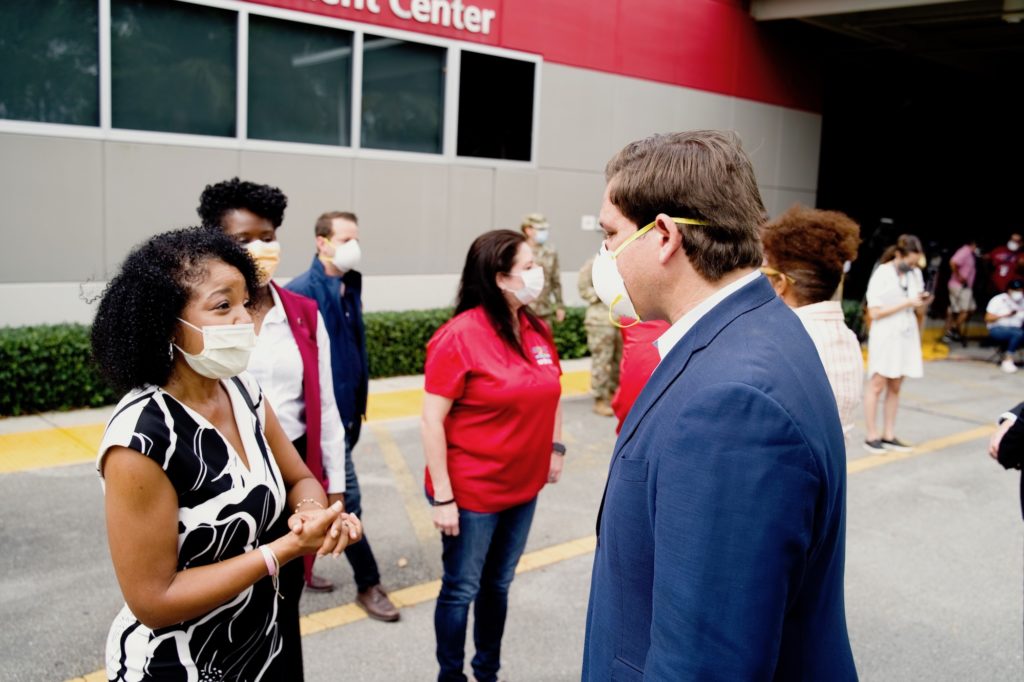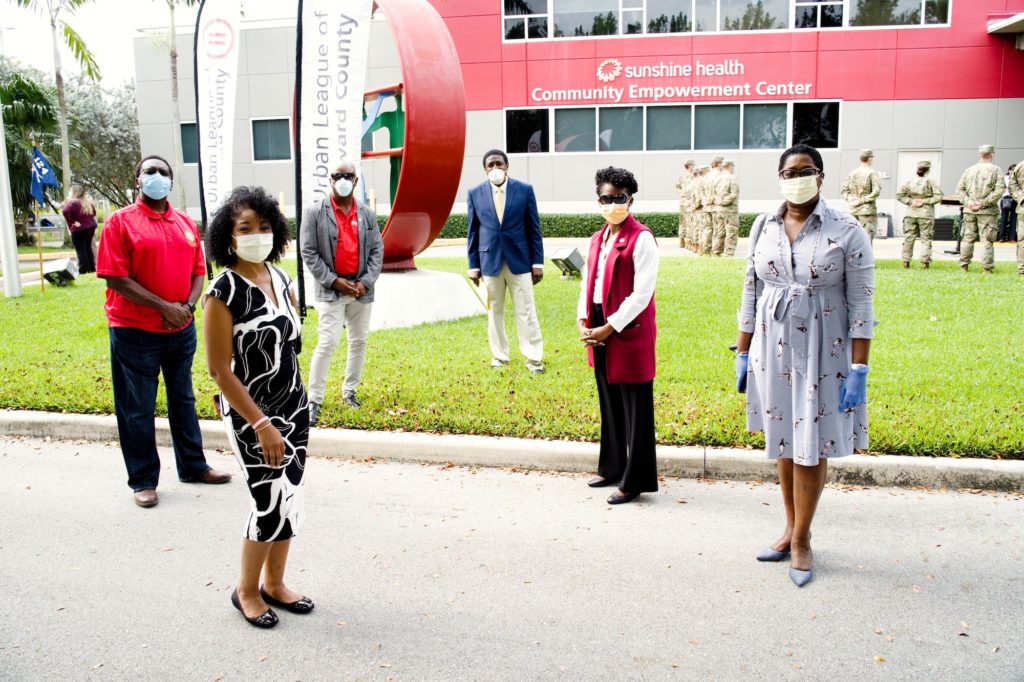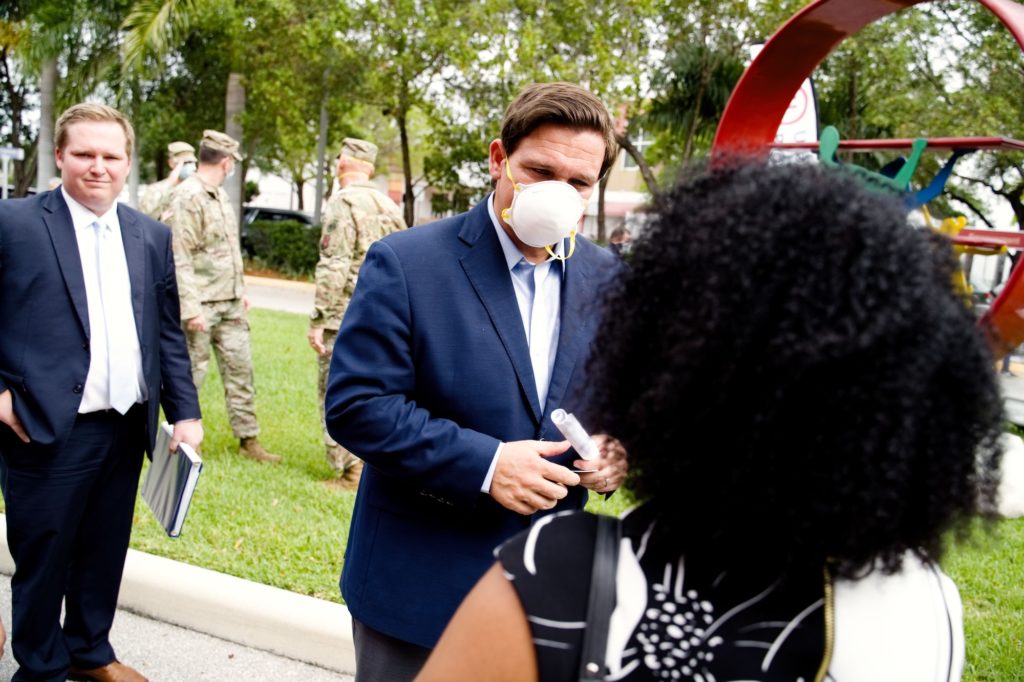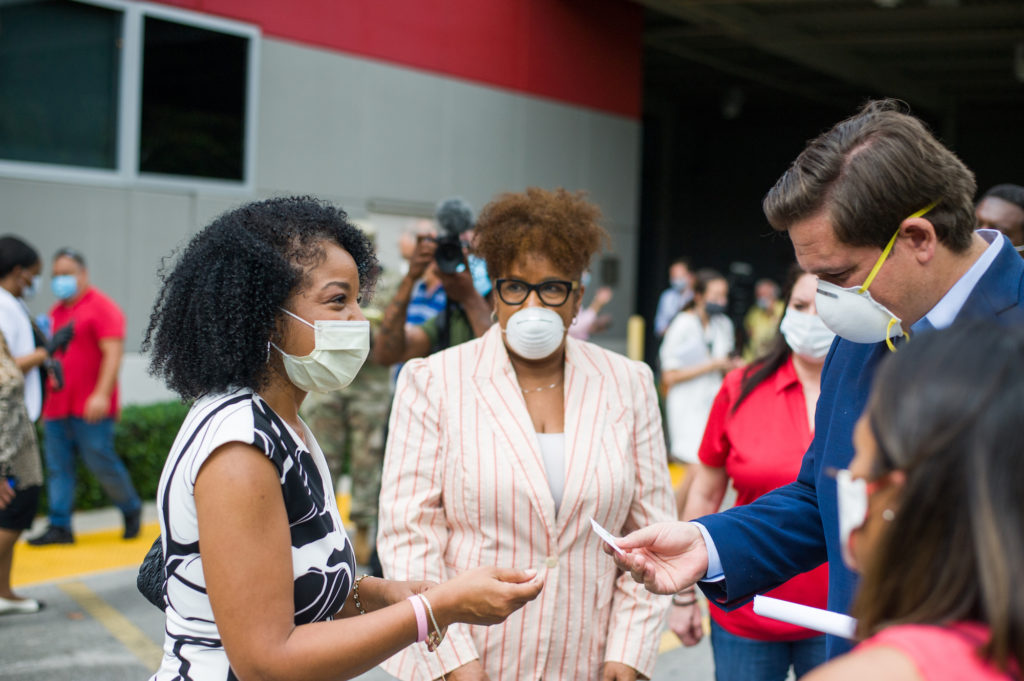Originally Published on the Miami Herald’s Website
Address African- American Resident’s Heightened Risk of the Coronavirus
As a physician, I have an income and access to care. I am privy to information the average person is not. So when I received an email a few weeks ago informing me that I had been unknowingly exposed to COVID-19 during my TEDMED 2020 talk, I knew I had the ability and financial resources to keep myself and others safe. So many other African Americans in Miami-Dade County, and around the country, are not as fortunate.
For more than 30 years, from the time of the HIV epidemic to COVID -19, I have provided medical care to Miami’s inner cities. I know first-hand how these mostly African-American communities are disproportionately affected by whatever is taking place in society at large. COVID-19 will be no different.
We know definitively that those with underlying health conditions, regardless of race, are much more likely to die from complications with COVID-19. African Americans are 2.2 times more likely to have diabetes, 20 percent more likely to have high blood pressure, 30 percent more likely to be obese, more likely to have HIV, asthma and sickle cell anemia and more likely to live in poverty. Also they have higher rates of incarceration. All of these underlying health conditions put African Americans at a greater risk of death if they contract COVID-19.
We must take swift, thoughtful and deliberate action now if we are to avert a public-health catastrophe in this vulnerable community. Fortunately, there are simple things we can do that can make a big difference.
The biggest impact will come through expanding access to testing. For starters, the official testing guidelines should be updated to be more inclusive of behaviors common in African-American communities. The initial guidelines excluded most vulnerable populations by limiting testing to the elderly (65 years and older) to those with travel histories and healthcare workers. However, African Americans over 65 in Miami-Dade and Broward counties make up only 14 percent and 11 percent, respectively. They also travel less frequently.
At the end of March, the Community Emergency Response Center, a nonprofit under the leadership of Dr. Armen Henderson, completed a telephone survey of 1,000 primarily African-American Miami-County residents. The results showed 30 percent had a condition that placed them at medium or high risk of becoming severely ill with COVID-19. The center referred 100 for further screening through Department of Health hotline and sent 40 people for testing in person to various locations. This means that many people who should have been tested, were not.
But even if everyone could get a test, African-American communities needs to be educated on the risks, resources and protective measures available to them. The government and other health officials should leverage the media channels commonly consumed in the communities. Cultural radio stations and newspapers (Haitian Creole and Caribbean), churches and nongovernmental organizations (i.e. Black Greek organizations, African-American medical societies, Jamaican Women of Florida, Sant La, FANM, etc.) should all be enlisted.
Finally, to maximize the efficacy of this effort, timely and complete data, including race and location, must be quickly disseminated to better identify problem areas and enact speedy solutions. Currently, neither the Florida Department of Health nor the Centers for Disease Control and Prevention includes race or location in their online dashboard on testing, hospitalization or mortality. These omissions create blind spots that limit our ability to track the spread of the disease, allocate resources and provide effective care.
The truth is that the residents of most African-American communities will not be able to self-quarantine in comfortable homes with sufficient resources to buffer the impact of a potential loss of income. If we are to protect our collective health and uphold our duties as citizens, then we must acknowledge the specific challenges present and address them specifically.
Viruses do not discriminate. Taking care of vulnerable populations, is taking care of ourselves.
Cheryl L. Holder M.D. is president of the Florida State Medical Association.
https://www.miamiherald.com/opinion/op-ed/article241805631.html



